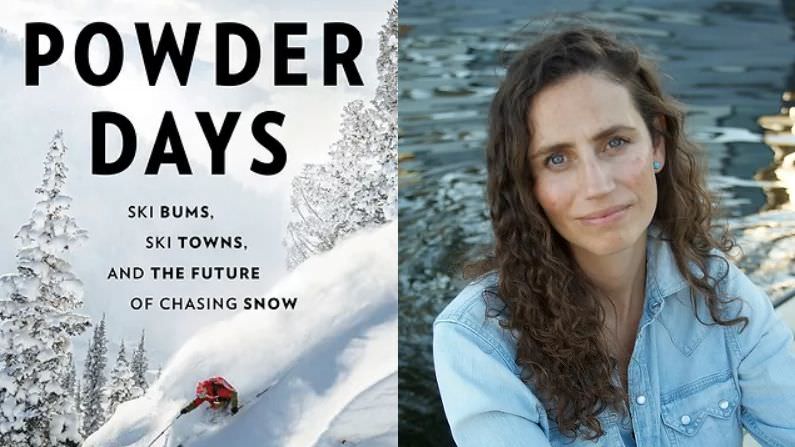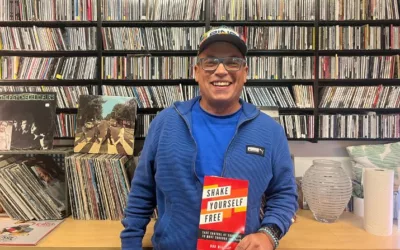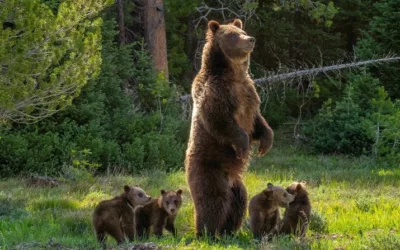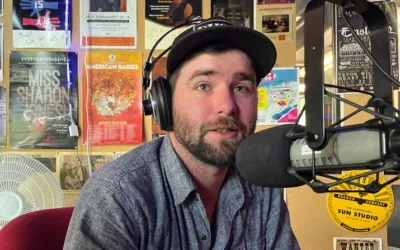Veteran ski journalist Heather Hansman’s 2021 book, “Powder Days: Ski Bums, Ski Towns and the Future of Chasing Snow,” explores the history of skiing and the modern heart of ski bum culture. KHOL Executive Director Emily Cohen spoke with Hansman about the book, as well as the future of the ski industry and mountain towns. The following transcript has been edited for brevity and clarity.
EMILY COHEN/KHOL: Great to speak with you today, Heather. “Powder Days” really resonated with me and I imagine it will for a lot of our listeners as well. It in some ways reminded me of a ski bum version of “Billionaire Wilderness” in that it was fused with a sociological and also anthropological analysis of this very particular and kind of peculiar world that we inhabit. I’m curious how that analogy lands?
HEATHER HANSMAN: I think that idea of, okay, I’m seeing this kind of social problem, or I’m seeing a microcosm of a community and a lifestyle change. And I want to investigate what the backstory is there and what’s going on, and is this feeling that I’m having based on reality? What are the facts? So, I think that idea of, like, how do you kind of look at this subculture and unpack it is something that he [“Billionaire Wilderness” author Justin Farrell] does really well as a sociologist and a social scientist. And [it was] was something that I was kind of sneakily trying to get into, too.
KHOL: One of the, I guess, overarching sentiments that I had when reading “Powder Days” was a sadness. These are isolated places. They’re hard places to leverage stability. Many people are just trying to hold on. They’re holding on to this idea of snow in a world of climate change [and] to limited and often subpar housing. They’re holding on to this idea of youth. Is sadness a fair assessment?
HANSMAN: Yeah, I think if there hadn’t been that level of sadness in it or… there’s like an ache almost in it. It would have been a really different book, and I don’t think it would have felt true to what I saw on the ground.
KHOL: Is this dream of the ski town life really possible?
HANSMAN: I go back to Jackson and also Aspen and a lot [of these mountain towns] as these kind of, like, way ahead of the problems of, ‘Is this thing feasible? Who gets to be a part of it? Are we hollowing out these places that we love and making them, you know, like, not real places anymore?’ And I think part of why this is so interesting to me is that it’s not necessarily just a ski town thing, but, you know, the issues are so aggravated because your wealth disparity and like the base wage and what people can actually make in these towns is so skewed that people who can come in from the outside don’t have to necessarily play in that system. And it’s gotten even worse in COVID. But I think this isn’t something that’s just happening in mountain towns. So, I think this is sort of like a big, society-wide [question of] ‘What are we going to do about it? What happens when the wheels start to fall off?’
KHOL: How did you eventually leave the ski town world?
HANSMAN: I guess the simple answer to that is that I got hurt. And I had been working seasonal jobs. I was working on the mountain in the winter and in restaurants and gear shops. I was working as a guide in the summer. And I ended up blowing my shoulder kayaking and kind of had this–I had been sort of wrestling with that question, even if I was in my mid-20s, of whether I could stay and make it work and what my life was going to look like. I kind of got freaked out by this idea of my life and my livelihood depending on my body, and my body being pretty fragile. And so I washed out. I was living in Colorado in the mountains there. And I went back to grad school to be a journalist, which is another totally stable, financially, lucrative way to go about things.
KHOL: You talk a lot about this contrast between skiing’s gritty past, you know, it’s founded by rebels and outsiders. And then it’s glossy future. And you use that phrase, ‘glossy future.’ What is there to be hopeful about?
HANSMAN: I would love a less glossy future of skiing in a lot of ways. And I think, in doing the reporting, a lot of the places that seemed like they were doing, maybe not a lot, but some of the places that seemed like they were doing well and had kind of figured out a sustainable balance of still being affordable, not being overrun, were places like Bridger Bowl outside of Bozeman or Mad River Glen in Vermont that are co-op owned. [They] kind of aren’t beholden, or not responsible to shareholders or a bigger company or something like that. So, I think there is some level of what is the economic sustainability of skiing as a business that is going to come into play. And that’s really hard. You know, if you’re a small ski hill in, especially in a place that’s sort of climatically vulnerable, that is a really hard business to keep going.
KHOL: It was fun to recognize some local names in the book, folks like Benny Wilson, one of the founders of the so-called Jackson Hole Air Force. Who are you writing this book for?
HANSMAN: That was one of the things that was scary about it is I wanted it to be accessible. Like, I didn’t want to be like too bro-y or too insider-y. But I also wanted it to resonate for people like Benny. A hard line to try and walk.
KHOL: Well, congratulations again on the publication of “Powder Days.” And for folks interested in reading the book, it is at the library because I finally returned my long-overdue copy.





